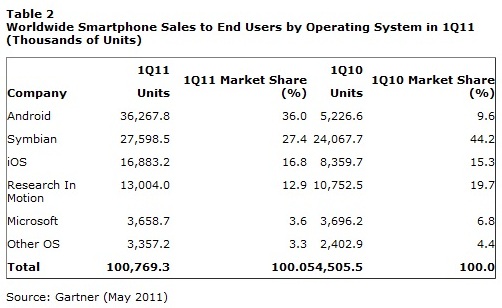Affiliate links on Android Authority may earn us a commission. Learn more.
Why Rooting Scares Google
What’s this Rooting Nonsense, Anyway?
Rooting is the process by which you (re)gain full administrative access of your phone or tablet. Even though Android is an open source operating system – you still don’t have full “root access” to do what you please. Back when the iPhone launched in 2007 the more technically included quickly realized the true potential of the device, and the cruel software limitations that Apple had sealed it with. What became ‘Jailbreaking’ on the iPhone was quickly translated to other platforms as well, and when the world saw the first Android device back in 2008, the term “Rooting” was born.
Why Rooting Scares Google

Much to the chagrin of open-source advocates, Google appears to be taking steps to clamp down on the process – and has officially confirmed that rooted devices won’t be allowed to play nice with its newly debuted movie rental service that has recently been announced.
Users that have rooted their device who attempt to use the movie rental service will receive a ‘Error 49’ message when attempting to play a movie on a rooted device. Google has confirmed in a help article on its Android Market website. “Rooted devices are currently unsupported due to requirements related to copyright protection.”

Google has already enraged the music industry for debuting Google Music without coming to prior agreement from industry big-wigs, and is obviously reacting in such a way that attempts to strike a balance between what users are looking for (good content), coupled with a strong DRM (Digital Rights Management) solution to protect the intellectual property of the Media companies involved. This is a reasonable fear, of course, as rooted devices with super-user access will be able to find a way around the digital restrictions management technology – it’s just a matter of time. Undoubtedly, a war is brewing, and there is little Google will be able to do to prevent savvy users from being able to download a film for free, or keep it permanently once the rental period has expired.
For users who want to option of participating in Google’s film rental programme, the message is clear: you can choose between the flexibility of a rooted device, or the ability to rent films through the Android Market – but not both.
Follow the Money

Ultimately, as Intel’s CEO just alluded to an a recent earnings call, the more devices with Android on-board, the more money Google makes. Google distributes Android freely to manufacturers and makes money through advertising. It’s a very long term approach, and one that is already paying off. Rooting enables the user to take full ownership and control of their device, and do with it what they please. In the process, they can block all advertising on their phone, delete Carrier mandated bloatware, put up a firewall that stops information from going back to advertisers, developers and even Google itself. So, rooting is actually a very threatening process to the big G, and potentially one that threatens its business model as well. While Google has played nice for the time being, it is clear that this is the beginning of a long and challenging struggle that is likely to alienate Android’s most ardent evangelists.

The Reality of the Situation
Android is now the world’s number one mobile operating system, capturing over 36% of smartphone sales in the first quarter of 2011, and this is a trend that is unlikely to slow down – in fact, it’s accelerating. Android will likely be on over 50% of smartphones sold sometime within the next 12 months.
Google has always known that early adopters and open source evangelists have been profound purveyors of Android love, at least initially. They are the technology thought leaders in their communities and peer groups, and are arguably a big part of the reason why Android has become so successful, so quickly. However, the buck has to stop somewhere – so to speak – and Google now has the difficult task of reconciling what users want, and what pays.
In all reality however, the percentage of Android users that actually root their devices is still quite low, and occupies a similar percentage ‘territory’ to that of users who jailbreak their iOS device. At the end of the day, Google and the Android team are doing what they think is best for the platform as a whole. Everything they are currently doing, such as reigning in fragmentation, unifying the OS to work on a wide array of devices, and providing easy to use content ecosystems are all harbingers of great things to come.